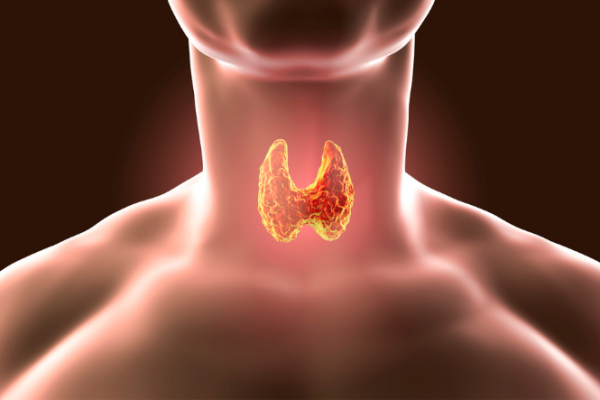There are a number of different reasons for an inflamed thyroid.
Hashimoto's thyroiditis
This is the name for the inflammation that happens when your immune system attacks your thyroid. The inflammation damages your thyroid and makes it underactive.
Postpartum thyroiditis
This is thyroid inflammation that happens to some women about 6 months after giving birth. It's caused by your immune system attacking your thyroid. Most women who get it have symptoms of an overactive thyroid for a few weeks then get symptoms of an underactive thyroid.
Postpartum thyroiditis is usually temporary and usually goes away when your baby is about 1 year old. But some women continue having an underactive thyroid and need to take thyroxine tablets.
Painless thyroiditis
This is similar to postpartum thyroiditis but can occur in men and women. It usually causes an overactive then underactive thyroid. Most people get better after 12–18 months.
Subacute thyroiditis
This happens after you've had a virus, such as the mumps or flu. It usually causes pain in your thyroid and an overactive thyroid at first, followed by an underactive thyroid.







